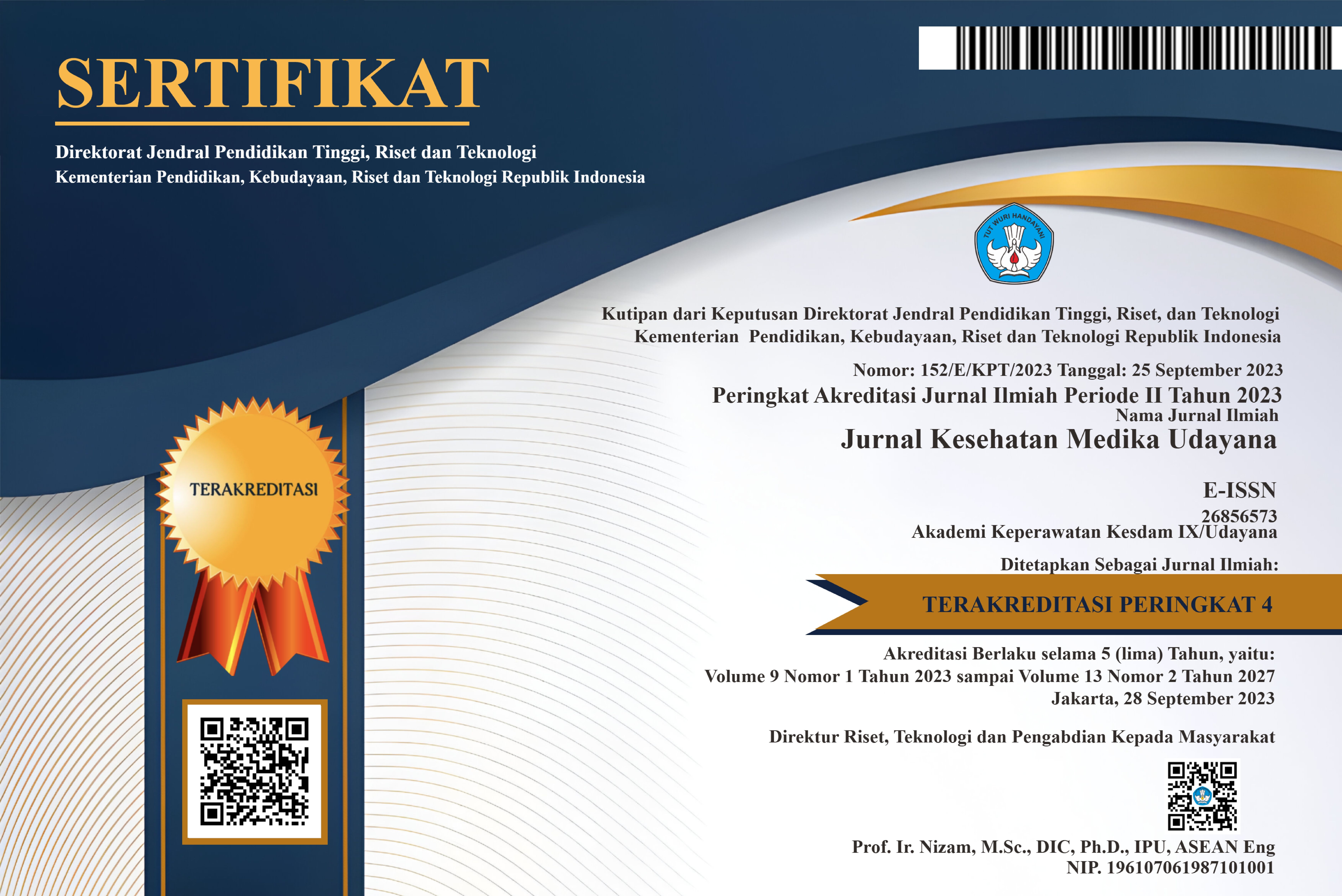Persepsi Masyarakat Terhadap Program Vaksinasi Covid-19 di Desa Cepaka Kediri Tabanan
DOI:
https://doi.org/10.47859/jmu.v8i01.186Keywords:
Persepsi masyarakat, Vaksinasi, Covid-19Abstract
ABSTRACT
Background and purpose: The phenomenon that is happening in the community is the implementation of the Covid-19 vaccination program, this raises the pros and cons, including the people of Cepaka Village, Kediri Tabanan. Therefore, researchers are interested in digging deeper into the public's perception of the Covid-19 vaccination
Methods: The design of this study is a qualitative research with an exploratory approach. Data were collected through in-depth online interview techniques with related informants and the data were analyzed thematically which would be presented in narrative form.
Results and Discussion: This study found that all informants had the perception that this Covid-19 infection was very dangerous and could cause death. The signs and symptoms that appear are not too significant, ranging from fever, cough, shortness of breath, decreased smell and stamina, but there are also sufferers who are asymptomatic. All informants made prevention efforts with 3M plus regular exercise, consuming nutritious food, vitamins and consuming homemade herbal ingredients at home. All of these informants agreed to carry out a vaccination program because they believed that the benefits of the vaccine would outweigh the disadvantages.
Conclusions and Suggestions: All informants in this study understand well the dangers of Covid-19 infection and always try to do prevention with health protocols. These informants strongly agreed to be vaccinated even though they did not really understand the procedure and the impact of the vaccine. To the village and Puskesmas to further socialize this vaccination program to the community level directly.
Keywords: Public perception, Vaccination, Covid-19
References
Bungin,B.2012. Analisis Data Penelitian Kualitatif. Jakarta: Raja Grafindo. Persada
Creswell, J.W. 2003. Research Design: Qualitative, Quantitative and Mixed Methods Approaches. New Delhi: SAGE Publications
Creswell,J.W.1998. Qualitative Inquiry and Research Designs. New Delhi: SAGE Publications
Gubernur Bali. 2020. Paket Kebijakan Percepatan Penanganan Corona Virus Disease 2019 (Covid-19) Di Provinsi Bali. https://covid19.hukumonline.com/ diakses tanggal 11 Nopember 2020
Green, L.W. 1980. Health Education Planning, A Diagnostic Approach California : Mayfield Publishing.
Green, L.W. and Kreuter, M.W. 2005. Health Program Planning: An Educational and Ecological Approach. 4th edition. NY: McGraw-Hill Higher Education. (diakses 26 Nopember 2016) Available from: http://lgreen.net/precede.htm
Kementerian Pendidikan dan Kebudayaan Republik Indonesia.2020. Surat Edaran Mendikbud No. 4 tahun 2020 tentang Pelaksanaan Kebijakan Pendidikan-Dalam Masa Darurat Penyebaran Corona Virus Disease Covid- 19 https://pusdiklat.kemdikbud.go.id/ diakses tanggal 11 Juli 2020
Kementerian Kesehatan Republik Indonesia.2020. Pedoman Pencegahan dan Pengendalian Corona Virus Disease (Covid-19) https://covid19.go.id/ diakses tanggal 11 Nopember 2020
Kementerian Kesehatan RI. 2020. Pedoman Pengendalian dan Pencegahan Coronavirus Disease (Covid-19) https://covid19.go.id/storage/app/media/Protokol/REV-05_Pedoman_P2_COVID-19_13_Juli_2020.pdf
KPCPEN. 2020. Survei Penerimaan Vaksin COVID-19 di Indonesia. https://covid19.go.id. Diakses tanggal 12 januari 2020
Moleong.2000. Metdologi Penelitian Kualitatif.Bandung: PT Remaja Rosdakarya
Notoatmodjo. S. 2005. Promosi Kesehatan Teori dan Aplikasi. Jakarta: Rhineka Cipta
Presiden RI. 2020. Penetapan Kedaruratantan Kesehatan Masyarakat Corona Virus Disease 2019 (Covid- 19) https://jdih.setkab.go.id. Diakses tanggal 11 Nopember 2020
Perhimpunan Dokter Paru Indonesia, dkk. 2020. Pedoman Tata Laksana Covid-19. Jakarta







